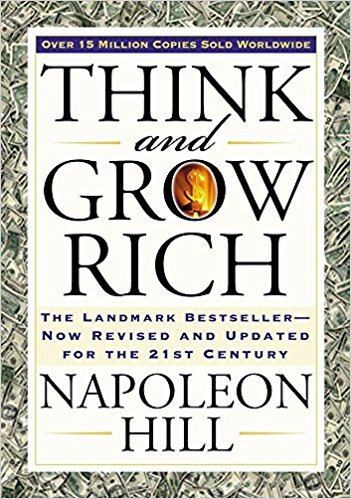Are you ready to accelerate your journey from novice to expert? One of the most effective ways to fast-track your progress is by finding a mentor who can guide you through the ups and downs of your chosen field. But here’s the catch: not all mentors are created equal. Here is what to look for in a mentor.
If you want to truly thrive and reach your goals, it’s crucial to identify a mentor who aligns with your aspirations and can provide the guidance and support you need. In this article, we’ll explore the key steps to finding the perfect mentor-match. From understanding your own goals and values to conducting thorough research, we’ll equip you with the tools you need to make an informed decision.
Whether you’re a recent graduate looking to kickstart your career or an experienced professional aiming for new heights, this guide will help you navigate the mentorship landscape and find the ideal mentor to propel you towards success. So, let’s dive in and uncover the secrets to finding a mentor that matches your goals!

Think and Grow Rich
by Napoleon Hill
⏱ 13 minutes reading time
🎧 Audio version available
The Importance of Having a Mentor
Having a mentor can be a game-changer when it comes to personal and professional growth. A mentor is someone who has already walked the path you want to tread, and their guidance and expertise can help you avoid common pitfalls and accelerate your progress.
They can provide valuable insights, share their experiences, and offer advice that can help you navigate the challenges and uncertainties that come with pursuing your goals. A mentor can also provide accountability, pushing you to step out of your comfort zone and strive for excellence.
Whether you’re looking to advance in your career, start a business, or develop a new skill, a mentor can provide the support and guidance you need to reach your full potential.
However, it’s important to note that not all mentors are created equal. Finding the right mentor who matches your goals and aspirations is crucial for a successful mentorship. A mismatched mentor can hinder your progress or provide guidance that doesn’t align with your objectives. That’s why it’s important to put in the effort to identify a mentor who is the right fit for you.
Understanding Your Goals and Needs
Before you start searching for a mentor, it’s important to have a clear understanding of your own goals and needs. What are you hoping to achieve through mentorship? Are you looking to gain specific skills, expand your network, or receive guidance on a particular aspect of your career?
Take some time to reflect on what you hope to gain from a mentorship and how it aligns with your long-term goals. This clarity will help you identify the type of mentor you need and ensure that you’re on the same page when you approach potential mentors.
Different Types of Mentors
Mentors come in various forms, and understanding the different types can help you identify the one that suits your needs. Traditional mentors are individuals who have achieved significant success in their field and can provide guidance based on their own experiences.
They often have a wealth of knowledge and connections that can be invaluable to your growth. Peer mentors, on the other hand, are individuals who are at a similar stage in their career as you. They can provide support, motivation, and advice from a relatable perspective.
Finally, there are also virtual mentors, who may not have a personal relationship with you but offer valuable guidance through their books, podcasts, or online courses. Understanding the different types of mentors can help you determine which one would be the best fit for your goals and circumstances.
Where to Find Mentors
Now that you have a clear understanding of your goals and the type of mentor you’re looking for, it’s time to start your search. There are several avenues you can explore to find potential mentors. One of the best places to start is within your own network. Reach out to colleagues, friends, or alumni who are in a position you aspire to be in and ask if they would be interested in mentoring you.
Another option is to join professional organizations or attend industry events where you can meet individuals who share your interests and may be open to mentorship. Additionally, online platforms and communities, such as LinkedIn or industry-specific forums, can connect you with professionals who are willing to share their knowledge and expertise.
Don’t be afraid to put yourself out there and make connections. You never know who might be willing to guide you on your journey.
Qualities to Look for in a Mentor
When evaluating potential mentors, it’s important to consider their qualities and whether they align with your needs. Look for mentors who possess the knowledge and expertise you seek, as well as a track record of success in their own careers. They should also have good communication skills and be willing to listen to your concerns and provide constructive feedback.
A mentor who is supportive, encouraging, and genuinely interested in your growth can make a significant difference in your journey. Additionally, consider their availability and commitment to the mentorship. Are they willing to invest the time and effort required to guide you effectively?
Assessing these qualities will help you narrow down your options and find a mentor who is the right fit for you.
How to Approach Potential Mentors
Once you have identified potential mentors, it’s time to reach out to them. When approaching a potential mentor, it’s important to be respectful of their time and make a compelling case for why they should consider mentoring you.
Start by expressing your admiration for their work and explaining why you believe they would be a valuable mentor. Be clear about what you hope to gain from the mentorship and how you believe they can help you achieve your goals. It’s also important to demonstrate your commitment and willingness to put in the effort required for the mentorship to be successful.
Finally, be open to the possibility that not all potential mentors will be available or interested in mentoring you. Rejection is a part of the process, and it’s important to remain positive and continue your search until you find the right mentor.
Building a Relationship with Your Mentor
Once you have found a mentor who is willing to guide you, it’s important to establish a strong relationship based on trust and mutual respect. Start by setting clear goals and expectations for the mentorship. What specific areas do you want to focus on? How often do you plan to meet or communicate?
Clarifying these details from the beginning will ensure that both you and your mentor are on the same page. Additionally, make an effort to get to know your mentor on a personal level. Building a genuine connection will make the mentorship more enjoyable and productive.
Show gratitude for their time and guidance, and be proactive in seeking their advice and feedback. Remember, a mentorship is a two-way street, and your active participation is crucial for its success.
Setting Goals and Expectations
Setting goals is a vital component of any mentorship. Together with your mentor, identify specific, measurable, achievable, relevant, and time-bound (SMART) goals that will guide your progress. These goals can be short-term or long-term, depending on your aspirations.
Regularly review and assess your progress towards these goals with your mentor. Use their guidance and expertise to make adjustments and course-correct as needed. Remember, mentorship is not a one-time event but an ongoing process of growth and learning.
By setting clear goals and expectations, you can make the most of your mentorship and ensure that you’re continually moving towards your desired outcomes.
Communication and Feedback
Effective communication is key to a successful mentorship. Establish open lines of communication with your mentor and be proactive in seeking their advice and feedback. Be respectful of their time and availability, and come prepared with specific questions or topics you’d like to discuss.
Actively listen to their advice and insights, and be open to constructive criticism. Remember, your mentor’s feedback is intended to help you grow and improve. Additionally, don’t hesitate to communicate your own needs and expectations. If something isn’t working or you need additional support, have an open and honest conversation with your mentor.
Effective communication and feedback are essential for a productive mentorship.
Nurturing the Mentorship
To ensure the longevity and success of your mentorship, it’s important to nurture the relationship with your mentor. Show appreciation for their time and guidance by expressing gratitude regularly. Keep them updated on your progress and milestones, and share any successes or challenges you’re experiencing.
Additionally, make an effort to give back to your mentor in any way you can. This could be by sharing your own insights, offering assistance on projects, or simply being a supportive presence in their journey. Remember, a mentorship is a two-way street, and your mentor will also benefit from seeing you thrive and succeed. By nurturing the mentorship, you can build a strong and lasting relationship that will continue to benefit you both.
Handling Challenges and Conflicts
Like any relationship, mentorships can encounter challenges and conflicts. It’s important to approach these situations with empathy and open-mindedness. If you find yourself disagreeing with your mentor or facing conflicts, take a step back and assess the situation objectively. Reflect on whether the conflict stems from a difference in perspectives or a misunderstanding.
If necessary, have a calm and respectful conversation with your mentor to address the issue and find a resolution. Remember, conflicts can be opportunities for growth and learning. By navigating these challenges together, you can strengthen your mentorship and come out on the other side with a deeper understanding of each other.
The Benefits of Being a Mentor
While this article has focused on finding a mentor, it’s important to recognize that mentorship is a two-way street. Once you have gained experience and expertise in your field, consider paying it forward by becoming a mentor yourself.
Being a mentor can be incredibly rewarding, as it allows you to share your knowledge, give back to your community, and make a positive impact on someone else’s life. By becoming a mentor, you not only contribute to the growth and development of others but also enhance your own skills and broaden your perspectives.
So, as you embark on your mentorship journey, keep in mind the potential for you to become a mentor in the future.
Related: Unlocking the Secrets to a Rich Mindset: Building Wealth from Within
Conclusion
Finding a mentor who matches your goals and aspirations is a crucial step towards accelerating your journey from novice to expert. By understanding your own goals and needs, exploring different types of mentors, and utilizing various avenues to find potential mentors, you can increase your chances of finding the perfect mentor-match.
Remember to evaluate mentors based on their qualities, approach them respectfully and make a compelling case for mentorship, and establish a strong relationship based on trust and open communication. Set clear goals and expectations, actively seek feedback, and nurture the mentorship to ensure its long-term success.
And don’t forget, as you benefit from having a mentor, consider becoming a mentor yourself in the future. With the right mentor by your side, you can overcome challenges, seize opportunities, and reach new heights in your chosen field. So, go ahead and take the first step towards finding your ideal mentor. Your journey to expertise awaits!
What Is Snapreads?

With the Snapreads app, you get the key insights from the best nonfiction books in minutes, not hours or days. Our experts transform these books into quick, memorable, easy-to-understand insights you can read when you have the time or listen to them on the go.


